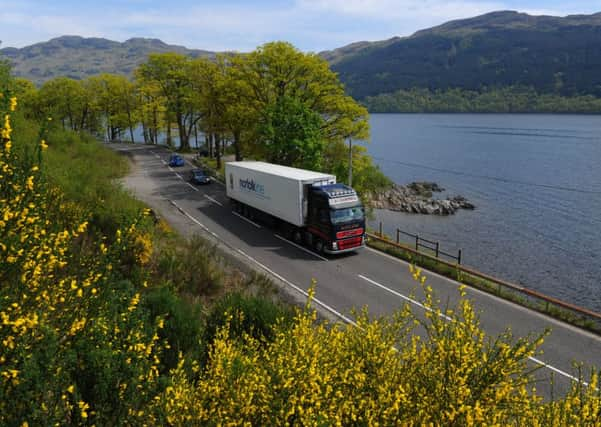Leader comment: A brake on global ambitions for food and drink


The headlines on just what a no-deal Brexit would mean for Scottish business are piling up by the day.
If you are a Brexiteer you might just think “it’ll be all right on the night” or that the headlines are simply scare stories to ensure Britain opts for the softest Brexit possible.
Advertisement
Hide AdAdvertisement
Hide AdBut within the Scottish food and drink industry the concerns are real. The industry is worth around £14.4 billion to the economy and now exceeds the oil and gas sector in growth. The nationwide plan is for that to double in size to £30bn by 2030. But Brexit has arrived to put a collective brake on this ambition.
James Withers, the head of Scotland Food and Drink, has warned that Brexit-related disruption to haulage routes could see perishable goods left rotting in lorries due to delays at ports.
The Dover Strait, for example, handles 10,000 lorries daily and processing is currently seamless. Customs controls will result in an average of about 45 minutes to process one truck on both sides of the Channel, says the Road Haulage Association.
Secondly, road hauliers in Scotland fear that Brexit will result in a exodus of foreign drivers, with the falling value of the pound combining with the long delays to make jobs in Europe more appealing.
Without doubt these fears exist across the food and drink industry across the UK. But in Scotland the concerns are heightened because of the importance of the sector and the feeling that it has been difficult to influence the process.
Scotland’s delays will be caused because each UK export consignment to Europe now has to be checked by customs staff in Calais, with tariffs and VAT collected. Staff and infrastructure are just not ready for this. Traffic going the other way will also be slow.
But customs issues are not the only area of concern. So-called phytosanitary checks are necessary for infection control to protect animals and the public and help stop the spread of everything from mad cow disease to Dutch elm disease. Everything will need to be checked: from animal feed, fruit and veg, and raw meat to ready meals. The Freight Transport Association believes that non-tariff barriers could cause the bulk of delays, a particular issue for perishable products such as Scottish salmon or langoustines.
One possible work-around is to increase the number of options for UK hauliers into the Continent. Lorries headed to Dover could instead be directed to ports in Essex and Suffolk and loaded on to ferries travelling to Belgium and the Netherlands. And could Scottish lorries avoid traditional routes by expanding arrangements at ports like Rosyth?
Stories about empty shelves in supermarkets are worrying, but for the food and drink sector this is about ensuring that Brexit does not leave our global ambitions sidelined.